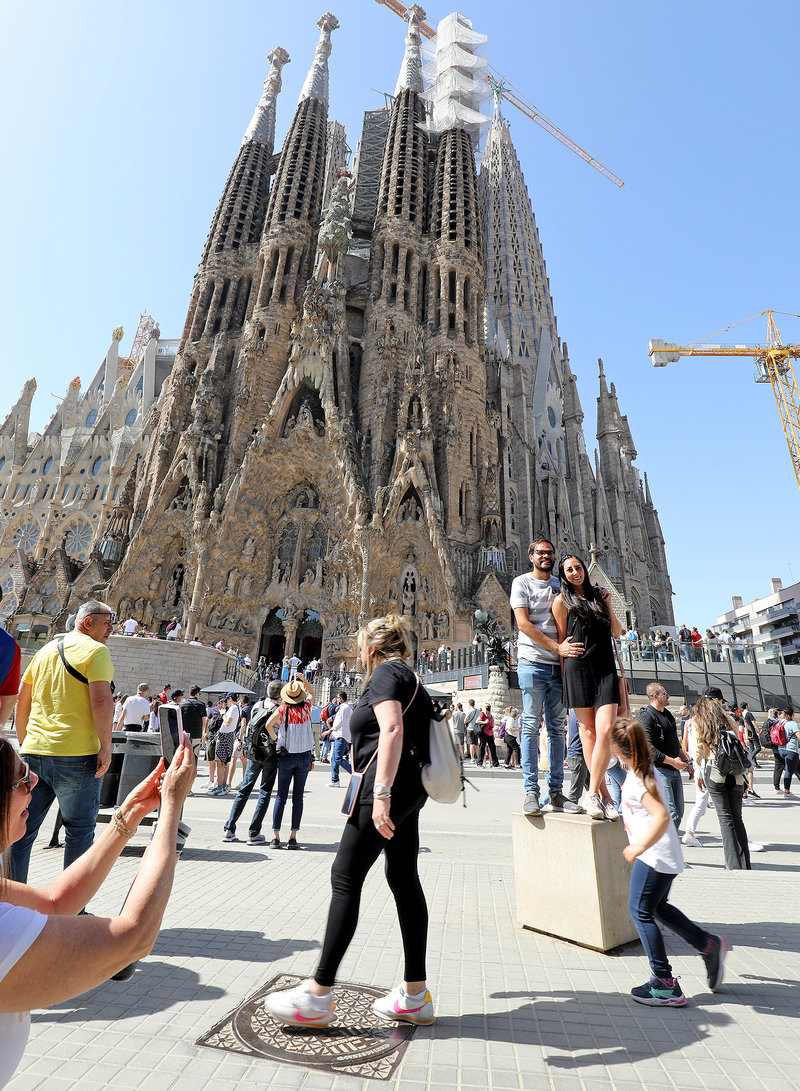Long-term resident
Touristdipity
Again and again they tried, slamming their stomachs into barriers which remained intransigent STUDIES HAVE SHOWN THAT A RELAXED HOLIDAY IN A WARM COUNTRY CAN REDUCE BRAIN CELL VOLUME
After two years of touristic drought, Barcelona is once again flooded with summer holidaymakers. Tourism was, originally, a phenomenon created by the chinless wonders of the English middle classes in the early 19th century, which is why there is a ‘Promenade des Anglais’ in Nice, and a ‘Hotel Majestic’ in Barcelona. But it wasn’t until 1855, when one Thomas Cook hit on the idea of organising what he called ‘grand circular tours of Europe’, that modern tourism really got going, with large numbers of people visiting places they didn’t know from Adam for reduced periods of time.
170 years later, there are now thirty classified types of tourism enjoyed by millions of people all over the world, from grief tourism and pop-culture tourism through to culinary tourism and agritourism (which means spending a week or so on a farm).
As already mentioned, Covid put paid to the lot for twenty-four months or so, but now Covid is considered to be little more than a rumbustious form of ‘flu, tourists of all variants are back with a vengeance.
You get to forget what it’s like to have the central part of the city overrun by yearning globetrotters, but the other day, when going into a metro station next to the Sagrada Família, I couldn’t help noticing that I was unable to reach the ticket barriers because a large crowd of people were blocking the way, apparently unable to get through said barriers. When I got closer, I saw that the problem was that they were putting their tickets in the slots and then trying to get through the barriers to the left of the slots instead of the ones to the right. Again and again they tried, like unsuccessful lemmings, slamming their stomachs into barriers which, for obvious reasons, remained intransigent.
Now it is certainly possible, if not probable, that in the metro stations in all the many different countries these people came from, you have to go through the barriers to the left of the ticket slots. But even so, it seemed odd that not a single sightseer had spotted the signs stuck on each Barcelonan barrier which showed a large black arrow pointing to the right, with instructions in three languages, including English, that that is where they were supposed to go.
Their behaviour suddenly brought back pre-Covid memories of other examples of touristic behaviour: walking along Barcelona’s central streets in bikinis and swimming trunks; strolling five in a row at a pace which would have made a tortoise look nimble on thoroughfares which were clearly also being used by busy, hurried, working citizens; prooflessly assuming they were being hoodwinked every time they bought a drink or a sandwich; buying things they didn’t need at prices they couldn’t afford; systematically calling every waiter Manolo...
Was it possible, I wondered, that tourism affected people’s IQs? That the simple fact of staying in a hotel and wandering around an unknown city made them lose their mental edge?
According to the Daily Telegraph and the BBC, that is exactly the case. Their source is a well-known German psychologist, Siegfried Lehrl, whose studies have shown that a relaxed holiday in a warm country can reduce brain cell volume by up to 15%. The good news, he adds, is that brain activity returns to normal after a few days at home. Which really is good news for me, as that’s where I spend every single holiday of the year, every year, for ever and ever. Amen.


